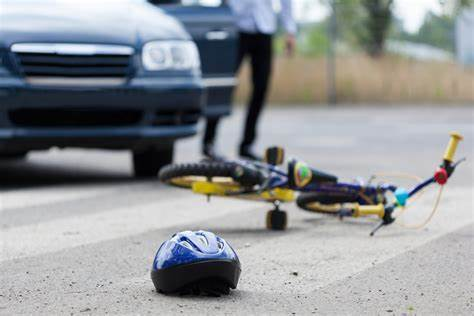Driving is a privilege, not a right. It comes with a set of rules and regulations designed to ensure the safety of drivers, passengers, and pedestrians.
Driving is a complex activity governed by numerous laws and regulations to ensure safety and order on the roads. Understanding what is legal and illegal while driving is crucial for all motorists. This article addresses common questions related to driving legality, including driving without a license, driving barefoot, and other frequently asked queries.
Driving Without a License
Operating a vehicle without a valid driver’s license is illegal in all 50 states. A driver’s license serves as proof that an individual has met the necessary requirements to operate a vehicle safely. Driving without one can lead to severe penalties.
Penalties for Driving Without a License
The consequences vary by state and the specifics of the offense but may include:
Fines: Monetary penalties that can be substantial, depending on the state and circumstances.
Jail Time: Some offenses may result in imprisonment, especially for repeat offenders or if other violations are involved.
Vehicle Impoundment: Authorities may impound the vehicle being driven without a license.
Increased Insurance Rates: Insurance companies may raise premiums or cancel policies for unlicensed driving offenses.
It’s important to note that driving with a suspended or revoked license carries even harsher penalties, including longer suspension periods and higher fines.
Driving Without a Physical License on Hand
Misplacing or forgetting your physical driver’s license at home is a common oversight. While you may have a valid license, not having it with you when driving can still lead to complications.
Legal Implications
The laws regarding driving without your physical license vary by state:
Some States: Require drivers to carry their physical license at all times. Failure to do so can result in fines or citations.
Other States: May allow officers to verify your license status electronically, potentially leading to a warning instead of a fine.
It’s advisable to always carry your physical driver’s license to avoid any legal issues.
Driving Barefoot
A common myth suggests that driving barefoot is illegal. However, this is not the case.
Legality of Driving Barefoot
It is legal to drive barefoot in all 50 states. No federal or state laws prohibit operating a vehicle without footwear. In the 1990s, Jason Heimbaugh confirmed this by contacting each state’s Department of Motor Vehicles.
What Makes Driving Illegal?
Driving can be considered illegal under various circumstances:
Driving Without a Valid License: Operating a motor vehicle without a valid driver’s license is a serious offense in most jurisdictions.
Driving Under the Influence (DUI/DWI): Driving while under the influence of alcohol or drugs is illegal and extremely dangerous.
Reckless Driving: This includes driving at excessive speeds, running red lights, and engaging in other dangerous driving behaviors.
Driving Without Insurance: Driving without the required auto insurance coverage is illegal in most jurisdictions.
Driving While Distracted: Distracted driving, such as texting while driving or using a cell phone, is illegal in many areas and can lead to serious accidents.
Driving Without a Seatbelt: Failing to wear a seatbelt is illegal and can have serious consequences in the event of an accident.
Driving an Unregistered or Uninsured Vehicle: Operating a vehicle that is not properly registered or insured is illegal.
Driving Underage: Driving without a valid driver’s license or below the legal driving age is illegal.
Driving with a Suspended or Revoked License: Driving while your license is suspended or revoked is illegal and can result in serious penalties.
Consequences of Illegal Driving:
The consequences of illegal driving can vary depending on the specific offense and the jurisdiction. Penalties may include:
Fines: Traffic tickets and fines can range from minor to substantial depending on the severity of the offense.
License Suspension or Revocation: Driving privileges may be suspended or revoked for a period of time.
Jail Time: In some cases, serious driving offenses can result in jail time.
Community Service: Court-ordered community service may be required as part of the penalty.
Increased Insurance Premiums: Convictions for traffic violations can lead to significant increases in insurance premiums.
Loss of Driving Privileges: In some cases, individuals may lose their driving privileges permanently.
Driving Responsibly:
Driving responsibly is essential for the safety of yourself and others. This includes:
Obeying all traffic laws and regulations.
Driving defensively and being aware of your surroundings.
Avoiding distractions such as cell phones and other electronic devices.
Never driving under the influence of alcohol or drugs.
Ensuring your vehicle is in proper working order.
Wearing a seatbelt at all times.
Being courteous to other drivers and pedestrians.
FAQs
Is it illegal to drive without a seatbelt?
Yes, it is generally illegal to drive or be a passenger in a motor vehicle without wearing a seatbelt.
Consequences: Fines and points on your license are common penalties for not wearing a seatbelt.
Is it illegal to drive without proper headlights?
Yes, it is illegal to drive without proper headlights.
When to use headlights: Headlights are typically required during nighttime, in low-visibility conditions (fog, rain, snow), and in tunnels.
Consequences: Fines can be issued for driving without proper headlights.
Is it illegal to drive an unregistered vehicle?
Yes, it is illegal to drive an unregistered vehicle.
Consequences: Fines and even vehicle impoundment can result from driving an unregistered vehicle.
Is it illegal to drive with an expired license or registration?
Yes, it is illegal to drive with an expired license or vehicle registration.
Consequences: Fines and potential license suspension can result from driving with expired documents.
Is it illegal to drive recklessly?
Yes, reckless driving is illegal and extremely dangerous.
Examples of reckless driving: Speeding, aggressive driving, driving under the influence, and distracted driving.
Consequences: Fines, jail time, and license suspension are possible penalties for reckless driving.
Is it illegal to drive in certain areas?
Yes, driving in certain areas may be restricted or prohibited.
Examples: Driving in pedestrian zones, parks, or private property without permission.
Consequences: Fines and towing may be enforced for driving in restricted areas.
Accordingly
Driving is a privilege that comes with significant responsibility. By understanding and abiding by the rules of the road and driving responsibly, you can help ensure the safety of yourself and others.
To read more,Click Here.





